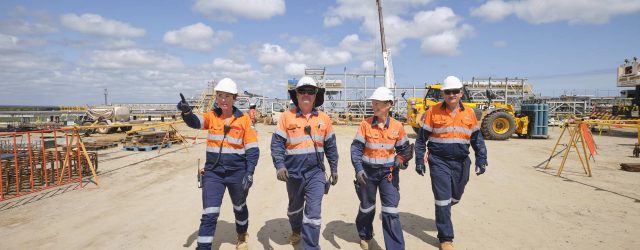The High Court’s rejection of a legal challenge to the appointment of an administrator for the CFMEU’s Construction and General Division brings much needed certainty to an industry that has seen little of it in recent years. The challenge, brought by former union leaders almost nine months ago, has been hanging over the sector like a cloud. Its resolution is welcome – but it does not solve the broader challenges facing construction.
An abundance of Ford Rangers on our roads gives the impression that our industry is in rude health, when this couldn’t be further from the truth. Many companies are teetering on the edge, one bad job away from collapse. Women still make up only 13% of the construction workforce and workers in the industry are six times more likely to die from suicide than a workplace accident.
The health of the construction industry is important because the industry is Australia’s fourth largest employer, employing over 1.3 million workers and contributing nearly 8% of GDP. It’s critical for fixing the housing crisis, building the infrastructure needed for our growing population, installing the new poles and wires to meet our decarbonisation commitments and ensuring our national defence through the construction of bases to house nuclear submarines and defence personnel.
If there is one industry that should be front and centre at the government’s recently announced Productivity Summit, construction is it. The Construction industry is now less productive than thirty years ago putting pressure on government budgets and impacting living standards for all Australians. If productivity growth in the construction industry had kept pace with other industries such as manufacturing, the economy would now be $60 billion better off every year.
There is no shortage of solutions. The construction productivity tree is groaning with low hanging fruit. But real progress will require support – especially from government.
This is not an industry in a position to invest in reform on its own. An industry that accounts for more than a quarter of all business insolvencies cannot afford to focus on workforce development. An industry that could get better returns if it left its money in the bank is not going to be investing in productivity enhancing tools and technologies. That has to change – and only government can change the rules of the game.
As the largest customers of construction services in the country, governments can lead the change that is required by acting as a model client – fairer contracts, better risk-sharing and more transparent procurement. It’s time to stop expecting contractors to fix prices on projects that take years to build and to carry all the risk for factors beyond their control from extreme weather to supply chain disruptions.
Governments should reward value, not just low bids. Pay contractors on time. Provide clear long-term work pipelines to give industry the confidence to invest. These are practical steps that would drive real productivity gains.
Industrial relations is another critical area. If the administrator now managing the CFMEU is given the support and resources needed to reset the culture, we can finally move away from an approach too often driven by personal power over project outcomes. But that reset must be permanent. That means further legislative reform to ensure long-term industrial stability.
We also need to revisit the idea of a modern-day productivity accord. A new compact—between government, industry and unions—could help align incentives and rebuild trust. Everyone wants the same thing: value for money, safe and secure jobs and a sustainable industry that delivers fair returns. Right now, no one is getting what they want. But that can change—if we agree that productivity is the path to a better outcome for all.
The government has indicated that industrial relations will be off the table at the Productivity Summit but the impact of IR, particularly in the construction industry, cannot be ignored. We recognise that the government is unlikely to repeal legislation that has already been introduced but this is no reason why consideration shouldn’t be given to the development of an accord that aligns and incentivises governments, industry and unions, to improve productivity in the sector.
The construction industry is used to solving complex problems every day. There is no more complex a problem than turning the industry around and, following the High Court’s decision, there has also never been a better opportunity or more pressing need to do this.
Opinion piece by Jon Davies, CEO, Australian Constructors Association
